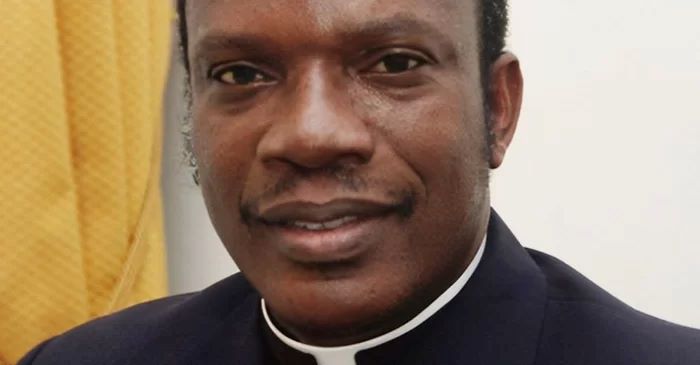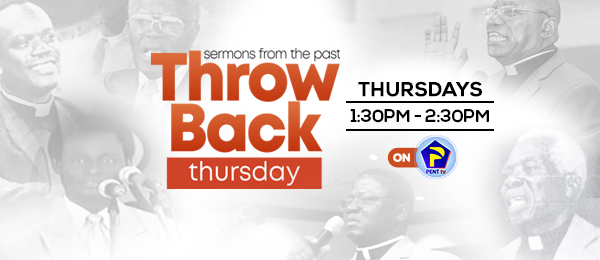
INTRODUCTION
They arrived with hearts set ablaze to keep the fire of the Gospel burning, despite the unfriendly African climate that claimed many lives. These individuals are true heroes of the faith. They faced the challenging task of ministering the Christian evangel in a context that often resisted it, resulting in significant losses. Then, a tall Irish man emerged on the scene: Pastor James McKeown.
He preached the word far and wide, establishing a thriving church to the glory of our Christ. Among the many aspirations James McKeown held for The Church of Pentecost (CoP) and the broader Christian community was the utilization of various media, especially writing, to disseminate the Gospel and explain the intricacies of Pentecostal doctrine to CoP members, the larger Christian community, and society as a whole.
Apostle Michael Kwabena Ntumy is the embodiment of this particular hope of Pastor McKeown.
“FOR I BEAR IN MY BODY THE MARKS OF JESUS”
How can one adequately describe Apostle Ntumy? Does his life not exemplify that it doesn’t matter where one finds themselves, but rather, when the searchlight of God falls upon you, your light shines for the world to see?
From him, we learn that young people are essential for leading and building the Church. He exemplifies that a gentle and quiet spirit is not a weakness but a virtue to be cherished. When Jesus Christ taught, “If a brother sins against you, go to them” (Matthew 18:15-20), Apostle Ntumy heard and became a champion of Christian unity and religious tolerance. You could ask the Ghana Pentecostal Council (GPC), before it became the Ghana Pentecostal and Charismatic Council (GPCC). If it were possible, you could verify this from the late H. E. Aliu Mahama, a former Vice President of Ghana.
The echoes of their friendship still resonate today, so there’s no need to consult the deceased. In this era of Pentecostal spirituality and the growth of divine healing as a central theme of Pentecostal theology worldwide, a Pentecostal giant found himself incapacitated and confined to a wheelchair, suffering in agony. Remarkably, he did not raise his voice against the God whom it was said could “heal all your diseases” (Psalm 103:3).
Apostle Ntumy demonstrates a remarkable balance in Pentecostal beliefs regarding supernatural phenomena. He understands that misfortunes can have physical causes and stands tall as an exemplar of what it means to be a true Pentecostal. This is a man who bears the marks of Christ. Just like his master, when some thought that God had stricken him, he did not succumb to their allegations or accuse God.
While many consider him a man of sorrow, he rejoices in the Lord’s joy. Suffice it to say that he is a true servant of Christ. His response to ill-health sets a monument for Christians now and generations to come. He bears in his body the marks of Christ’s suffering, just as Apostle Paul did. He heard the call of his master amidst the sound of gunfire, beckoning him to “feed my lamb.”
Undoubtedly, the weight of the memoirs of Paul, detailing the suffering and struggles he endured as a minister of Christ, can be compared to that of Ntumy. Despite these hardships, he pursued his passion for writing, a gift bestowed upon him by the Lord. He has carved a niche for himself as an outstanding writer, significantly influencing writing within the CoP. The hope Pastor McKeown had regarding the use of books to convey the Gospel and the Pentecostal message has been realized through the writing ministry of Apostle Ntumy.
ON TABLETS OF THE HEART AND PAPERS OF HOPE
Pastor McKeown was not a strong advocate for preparing sermon notes, a view shared by many Pentecostals at the time. He believed one should pray until the word was laid on their heart, emphasizing that the word of God should register in the hearts of people as they listened. He once mentioned during a conference, “When I look at your faces, the words were registering. You were taking them in.”
From this perspective, it may seem that writing, in general, did not appeal to him much, but that’s not the case. He particularly believed that ministers of Christ and Christians should endeavor to articulate their thoughts on paper. Barely two years after his arrival in the Gold Coast (now Ghana), in January 1939, he wrote and published an article titled “Gathering Gold in the Gold Coast” in the influential magazine Herald of Grace.
He wrote another report for the same magazine in January 1941. He encouraged people to pour out the reflections of their hearts on paper, benefiting others near and far. In May 1986, during an interview when asked about the number of churches at the time and how evangelism was being carried out, Pastor McKeown emphasized the importance of radio broadcasting and writing in evangelism and discipleship.
He even expressed hope that someday, instead of just magazines, they would have actual books disseminating doctrine clearly to the people. At that time, the CoP had been publishing a magazine called Pentecost Fire, distributed free of charge throughout Ghana since March 6, 1965. These periodicals played a pivotal role in spreading the gospel during the early days of the CoP.
Today, the CoP utilizes both print and electronic media to reach out to the world. Apostle Ntumy’s tangible fulfillment of Pastor McKeown’s desire for “real books” is evident. His writing prowess shone even in the midst of paralysis. He became a true man of manuscripts.
MAN OF MANUSCRIPTS
Apostle Ntumy places great importance on education, creating opportunities for many people to pursue higher education. He further demonstrated the significance of writing, a disposition not commonly associated with Pentecostals. The Apostle’s writing acumen is one of the major aspects of his ministry that will leave an indelible mark in the annals of the CoP.
The institutionalization of Pastor McKeown’s hope can be seen in the Pentecost Literary Works of the CoP, with Apostle Ntumy serving as its director for almost a decade. In addition to personally publishing up to 16 books, he has co-edited over 20 others for the CoP in his role as the director of the Pentecost Literary Works. These books provide detailed explanations of the CoP’s annual themes and make Christian doctrine accessible to many.
Isn’t this what Pastor McKeown hoped for? The Apostle has trained numerous individuals in writing and has reviewed countless other books. To further his vision of transmitting godly knowledge through the written word, Apostle Ntumy established a public library in his hometown.
CONCLUSION
Dear Pastor McKeown, I am pleased to inform you that your hope has been realized in a grand fashion. What began as a mere droplet of water longing to quench the thirst of a vast, arid land has grown into an unending fountain, even in the driest seasons. Apostle Ntumy has answered your call with excellence, even in the face of pain. Apostle Ntumy is a man who deserves admiration from philosophers.
Theologians will find ample material for discussing how God works in the world through his life. Historians, both present and future, who write about the history of Christianity in Ghana must include the story of Apostle Ntumy; otherwise, they leave a significant gap in their narratives, rendering the history incomplete from their perspective. The various forms of art, including literature, poetry, and drama, must embrace the life of Apostle Ntumy, who has brought the Bible to life. Filmmakers should preach his life and teachings. A heartfelt salute to those who refer to him as “a Christian general.”
Source: thecophq.org





















